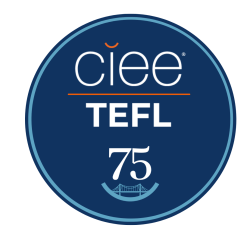Everything You Need to Teach English with the EPIK Program in South Korea
South Korea has long been a popular teach abroad destination for those itching to experience life in Asia. The low cost of living coupled with the high salary and excellent benefits are hard to beat! Not to mention the country's beautiful mountainous landscape, vibrant big cities, and delicious food are enough to entice many.
When deciding to teach English in South Korea, there are two main routes aspiring ESL teachers can take to find a job: through private academies known as hagwons or public schools with the EPIK program. The CIEE Teach Abroad program in South Korea can help you to teach in both public or private schools but this guide shares all you need to know to teach English in South Korea with EPIK.
Snapshot of Teaching English with EPIK
Avg. Salary: $1,750-$2,500/month
Teaching Hours: 22 hours
Duration of contract: 12 months
Application period: February to July (fall intake), August to January (spring intake)
Start date: Late August (fall intake), Late February (spring intake)
School term: March to mid-July, and end of August to mid-February
Visa requirements: E-2 Visa
What is the EPIK Program?
An acronym for English Program in Korea, EPIK is a teach abroad program sponsored by the South Korean government. It places native English speakers in elementary, middle, and high schools around the country as assistant English teachers.
EPIK is known to be competitive, and the application process can be challenging. However, CIEE's Teach Abroad program in South Korea provides guidance on how to apply to the EPIK program.

What are the requirements to teach English with EPIK?
The EPIK program has a very specific set of eligibility requirements. You must:
- Have a Bachelor’s degree or higher
- Be a native English citizen of the U.S, U.K., Canada, Ireland, South Africa, Australia, and New Zealand.
- Have a TEFL certificate of 120 hours or more
- Show proof of a clean background check
- Be under the age of 62*
*Although EPIK states that applicants must be under the age of 62, applicants above the age of 45 often find it difficult to be successfully accepted into the program.
You can learn more and see the complete list of eligibility criteria on EPIK's official website.
Your Responsibilities as a NET with EPIK
When you teach with EPIK, your job is as a NET or a "Native English Teacher." You teach alongside a Korean co-teacher and are expected to help lead classes, prepare lesson materials, teach English summer camps, and organize extracurricular activities as requested by your school.
NETs are contracted to work 40 hours a week, 22 of which are classroom or teaching hours. That means the rest of the time is yours for lesson planning and assisting your co-teachers as needed.
Read More: Is Teaching Abroad Alone Safe for Women?

EPIK Program Salary: How much can you earn teaching with EPIK?
South Korea is regarded as one of the best countries to teach and save money, thanks to the high salary, additional benefits, and low cost of living. With the EPIK Program, teachers are paid between 2,100,000 - 2,500,000+ won ($1,750-$2,000+) per month.
Your EPIK salary is based on your qualifications, placement city, and the number of years of teaching experience. You can also earn additional income if placed at more than one school or in a rural destination.
Additional Benefits in the EPIK Program
The exceptional salary NETs are paid isn’t the only perk!
Here are the other benefits of teaching with the EPIK program in South Korea:
- Visa assistance
- Settlement allowance of 300,000 won when you first arrive
- Free furnished housing
- Severance pay (contract completion bonus)
- Flight reimbursement
- Renewal bonus for those who renew
- National health insurance
- A national pension that can be refunded when you leave (for some nationalities)
- 26 days of paid vacation plus national holidays
Where are teachers placed in South Korea with the EPIK program?
Successful EPIK applicants are placed in public elementary, middle, and high schools around the country. Many aspiring ESL teachers have dreams of teaching in Seoul. However, receiving a placement in the country's largest city is rare and not always possible.
Instead, most EPIK English teachers are placed in Busan, Daegu, Daejeon, Ulsan, and other smaller and rural destinations. On your EPIK application, you can list one placement preference that is taken into consideration. However, you're ultimately placed based on job availability, and it's essential to have an open mind when moving to Korea with EPIK.

How to Apply to Teach English with EPIK
The EPIK application process can be a bit daunting and requires the collection of certified documents, an online interview, and a lot of waiting. If you are wanting assistance with your EPIK application, CIEE Teach Abroad is an official partner of the EPIK program and can walk you through the process step-by-step as a part of the CIEE Teach Abroad program in South Korea.
Here's a summary of how to apply to EPIK:
1. Choose between the Spring or Fall intake and create an online EPIK account.
2. Prepare and submit required documents for EPIK.
- EPIK application form
- Two letters of recommendation with ink signatures
- Certified FBI background check
- Professional photo and passport scan
- Certified diploma, degree, and transcripts
- TEFL certificate
- Demo lesson plan
- Resume
- Sign all additional documents and disclosures
- Have an online interview with EPIK if you pass the initial screening.
3. Submit hard copies of required documents if you pass the first interview.
4. Receive final word of placement if accepted and begin applying for a visa.
5. Fly to Korea to attend EPIK’s mandatory eight-day orientation
6. Move to your new home and start teaching!
Applications missing essential documents and information may not be considered, so be sure to carefully read over the application process before submitting your application. This is where the help of CIEE's EPIK Application Assistance can come in handy!
EPIK Application Timeline
There are two application periods for the EPIK program, which are referred to as the fall or spring intakes.
Here’s a rough timeline of the EPIK fall [and spring] application process:
- February to July [August to January]: The EPIK Program accepts applications.
- April to July [October to January]: Online interviews are held, and those who pass are asked to mail their final application directly to EPIK.
- June to July [December to January]: Final selection of applicants is sent out.
- July to August [January to February]: Successful applicants start applying for their Korean visa from the nearest embassy.
- Late August [Late February]: Fly to South Korea, attend the mandatory EPIK orientation, and start teaching.

The Pros and Cons of Teaching English with EPIK
While teaching English with EPIK is a fantastic opportunity overall, it's important to highlight some of the key benefits and disadvantages so you can decide if the program is right for you.
Pros of teaching with EPIK
- Security of a government-sponsored program.
- The fantastic salary and benefits including free accommodation, health insurance, plenty of vacation days, etc.
- The "regular" working schedule during the work week and between 8:30 am to 4:00 pm.
Cons of teaching with EPIK
- The boredom of desk warming. EPIK teachers must be at school 40 hours a week even when there aren’t classes or lessons to plan, which can mean many hours sitting at your desk.
- The inflexible vacation dates. EPIK teachers are contracted to work year-round. You can only take your allotted vacation days when the school is on break, and there aren’t English camps or extracurriculars to lead.
- Teachers don’t have direct choice in teaching placement other than your ability to list one preference on the EPIK application.
What’s it like to teach English with EPIK?
It can be hard to gauge what it’s like to teach English in Korea until you’re there. However, these first-hand accounts can shed light on what it’s really like before you take off.
- Ultimate Packing Guide: What to Bring to South Korea by Ash K.
- My Korean Apartment by Jessica B.
- What I've Learned Living in South Korea by Laura S.
- The Pros and Cons of Teaching in South Korea by Noelle E.
- How to Ace the EPIK Application by Life of Brit

Do you need a TEFL certificate to teach with the EPIK Program?
To teach English with the EPIK program, you'll need to have a reputable TEFL certificate. EPIK requires applicants to have a TEFL certificate of at least 120-hours to ensure that teachers are appropriately prepared for the classroom. And because EPIK is a competitive program, choosing a TEFL that includes a practicum, or in-class component, can help your application stand out from the crowd.
CIEE TEFL’s 150-Hour TEFL Certification
CIEE TEFL is an internationally trusted brand recognized for being one of the best TEFL providers in the industry. CIEE has a proven track record of helping graduates secure teaching jobs abroad and equips teachers with the confidence to succeed—especially in South Korea!
CIEE TEFL's 150-hour certification makes it easy to complete your TEFL training online in just three months. This comprehensive course includes:
- 130 hours of ACCET accredited coursework
- 20 hour TEFL practicum
- Instruction by highly qualified TEFL tutors
- Job search assistance
- EPIK Application Assistance when you apply to CIEE's Teach Abroad program in South Korea
Related Posts
Employer Q & A: Personal Considerations When Living in Budapest for the Preschool & After-School Position in Hungary
Budapest calling, but is it the right fit for you? This Q&A unpacks more personal questions related to teaching English in Budapest. We'll explore everything from navigating the city to... keep reading
Employer Q & A: The Teaching and Work Environment for the Preschool & After-School Position in Hungary
Curious about what it's really like to teach abroad? This Q&A dives deep into the day-to-day experience! We'll explore the teaching environment, including classroom dynamics, school culture, and collaboration with... keep reading
Employer Q & A: Logistics and Practicalities for the Preschool & After-School Position in Hungary
Dreaming of teaching English abroad? Hungary could be your perfect destination! This post dives into some of the most frequently asked questions about teaching English in Hungary, featuring insights from... keep reading




